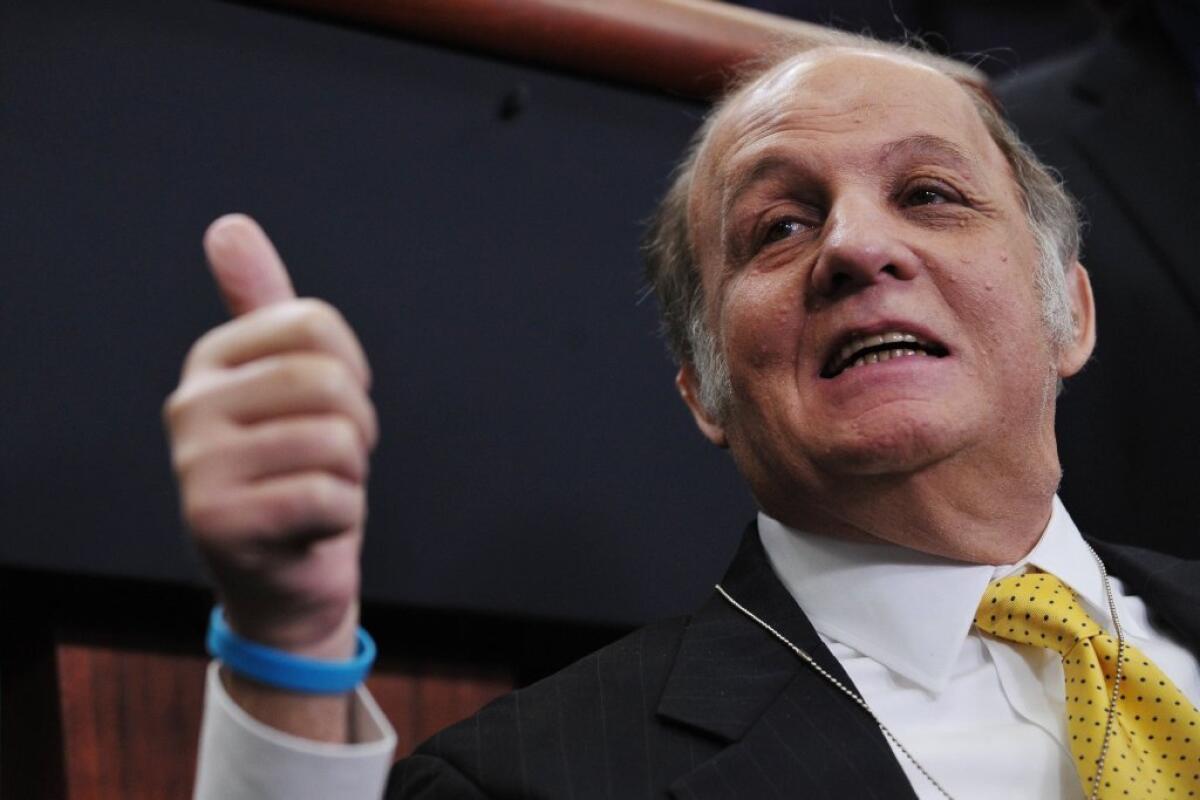Prosecutors will not charge John Hinckley Jr. in death of James Brady

- Share via
Federal prosecutors have decided not to bring homicide charges against John Hinckley Jr., who shot and wounded James Brady during an attempt on President Reagan’s life in 1981, citing a series of legal hiccups that would make attaining a conviction nearly impossible.
In a statement released Friday, the U.S. attorney’s office said a court’s prior finding that Hinckley was not sane when he opened fire on Reagan, Brady and two law enforcement officers in 1981 would preclude prosecutors from trying to argue that he was sane when he shot Brady.
Hinckley was found not guilty by reason of insanity of all charges against him.
Brady died at age 73 in August, but a medical examiner determined his death was caused by the long-lasting and debilitating injuries he suffered as a result of Hinckley’s attack.
At the time Brady was shot, District of Columbia courts also operated under a ruling that stipulated homicide charges must be brought within one year and one day of the injuries that contributed to a death.
“The Brady family respects the decision of the U.S. attorney’s office for the District of Columbia not to move forward with prosecution,” his relatives said in a statement.
Brady had been serving as White House press secretary two months into Reagan’s first term when Hinckley shot at the president outside a Washington hotel where he had just given a speech. Brady was shot in the head, and Reagan was wounded.
A police officer and a Secret Service agent were also injured, but Brady suffered the longest-lasting injuries when a bullet passed through his forehead and pierced the right side of his brain.
He suffered partial paralysis and permanently slurred speech. When he left the Reagan administration, Brady became one of the nation’s foremost gun control advocates.
The Brady Handgun Violence Prevention Act was passed in 1993, which required buyers to undergo background checks and go through a five-day waiting period before purchasing firearms.
More to Read
Sign up for Essential California
The most important California stories and recommendations in your inbox every morning.
You may occasionally receive promotional content from the Los Angeles Times.











